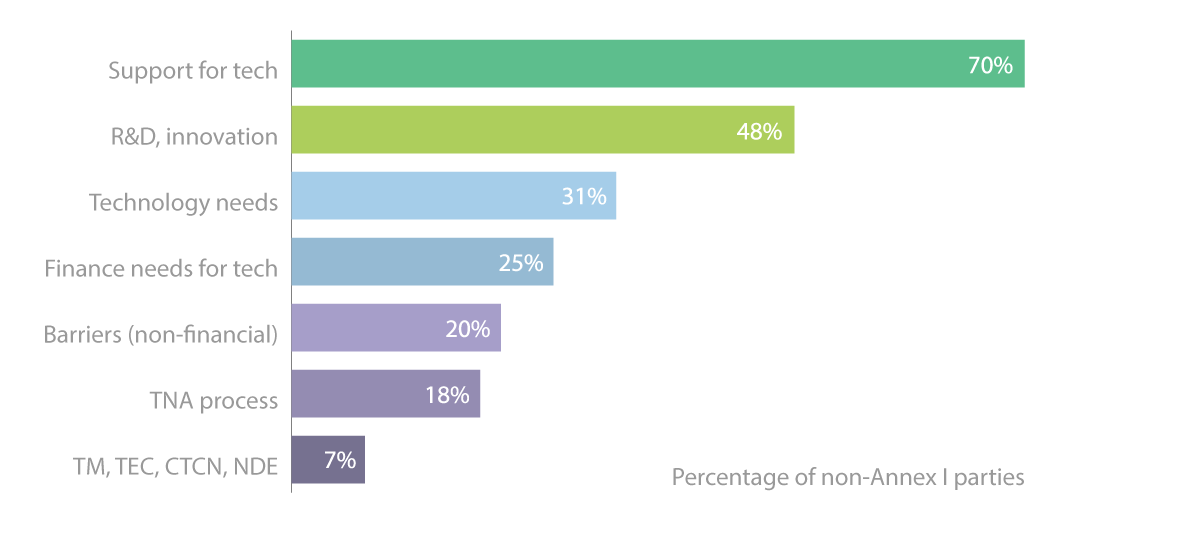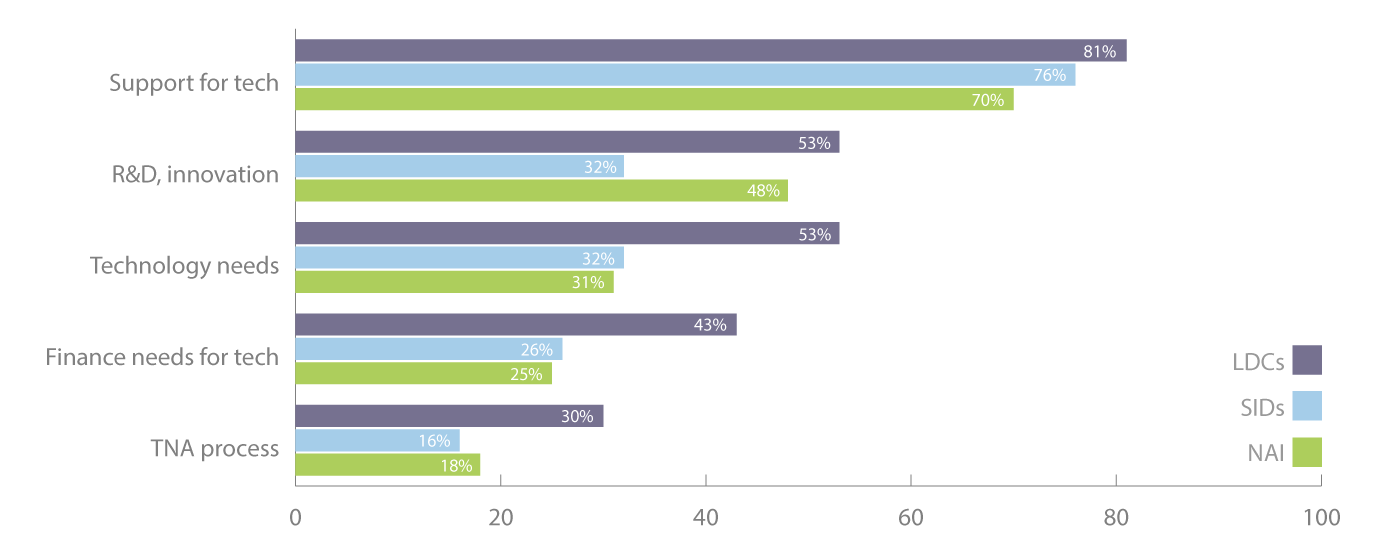Technology Needs Assessment
Pathways for climate tech implementation
Technology and NDCS
In their intended nationally determined contributions (INDCs), countries outlined their planned efforts for climate change mitigation and adaptation. The secretariat has analysed the 190 INDCs submitted by 28 April 2016 to determine how they refer to climate technology issues and in what context. Read the full report here.
Key findings
Of the 190 Parties that submitted an INDC, more than 75 per cent mentioned technology. Approximately 25 per cent of Annex I Parties referred to technology, generally in the context of R&D and innovation to support national action. Nearly 140 developing countries mentioned technology in their INDCs, representing approximately 95% of all developing countries.
More than 100 developing countries expressed the need for international support for technology development and transfer to implement their national plans. Nearly one-third mentioned specific climate technology needs, with one-fifth (26 countries) referring to technology needs assessments (TNAs).
Technology issues
Technology themes which developing countries often raised in their INDCs included support for technology; research, development and innovation; technology needs; finance needs for tech; non-financial barriers; technology needs assessment process.

SIDs and LDCs
Regarding small island developing states (SIDS) and least developed countries (LDCs), these countries in general raised climate technology issues more often than the developing countries as a whole.

Technology Needs Assessments and INDCs
On TNAs, 26 non-Annex I Parties directly referred to them in their INDCs:
30% noted that they want to undertake a TNA
75% referred to an on-going or completed TNA
50% said the TNA was an input into their INDC
20% mentioned technology action plans
Country examples
Concrete examples of actions from INDCs are available in the report’s annex. These include the following:
Costa Rica. Based on its 2011 TNA report, Costa Rica proposed two approaches for adaptation – adaptive co-management at the watershed level and detailed climate change scenarios.
Thailand. In its INDC, Thailand noted that it is working on three areas previously identified in its TNA – agriculture, water resource management and modelling.
Vanuatu. Vanuatu noted that a TNA is needed as a matter of priority to look at implementing a country driven process for identifying and analysing the priority technology needs for mitigating and adapting to climate change. It further noted that carrying out the TNA could provide an opportunity to realize the need for new techniques, equipment, knowledge and skills for mitigating greenhouse gas emissions and reducing vulnerability to climate change.
